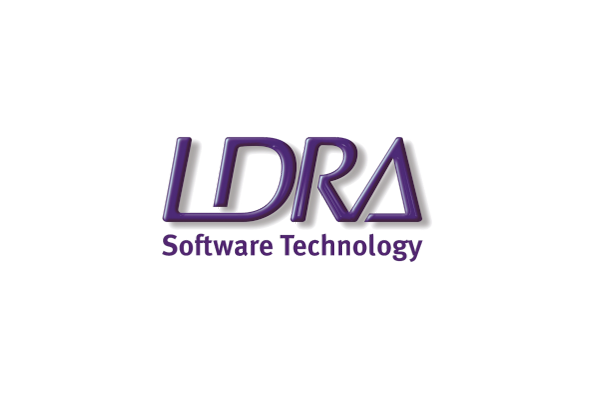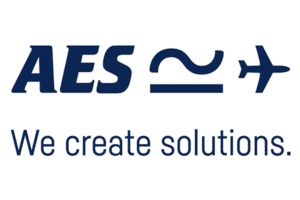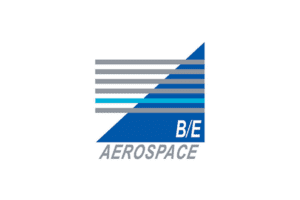
The LDRA tool suite is a flexible platform for producing safety, security, and mission-critical software in an accelerated, cost effective and requirements driven process.
Our brands

Our brands

Related articles

NEW – SEGGER Launches emBoot-Secure: A Drop-In Solution for CRA-Compliant Firmware Updates
With the Cyber Resilience Act approaching, secure firmware updates are no longer optional. Discover how SEGGER’s emBoot-Secure provides a ready-made, CRA-compliant answer. This new solution ensures only manufacturer-signed code enters...
Read more
The Top 5 Vulnerabilities in Embedded Software and How to Prevent Them
Read more
Why continuous monitoring for vulnerabilities is essential in embedded systems
Read more
Cyber Resilience Act: Critical Cybersecurity Requirements
Read more
PRESS RELEASE – Logic Technology Appointed European Distributor for Lattix by CodeClinic
Read more

The LDRA tool suite is LDRA’s flagship platform that delivers open and extensible solutions for building quality into software from requirements through to deployment.
The tool suite provides a continuum of capabilities including:
- Requirements traceability,
- Test management,
- Coding standards compliance,
- Code quality review,
- Code coverage analysis,
- Data-flow and control-flow analysis,
- Unit/integration/target testing,
- and certification and regulatory support.
It supports traditional & Modern Testing Methodologies like Unit & Integration Testing and Agile, DevOps & Test Driven Development ( TDD) .
The LDRA tool suite is LDRA’s flagship platform that delivers open and extensible solutions for building quality into software from requirements through to deployment.
The tool suite provides a continuum of capabilities including:
- Requirements traceability,
- Test management,
- Coding standards compliance,
- Code quality review,
- Code coverage analysis,
- Data-flow and control-flow analysis,
- Unit/integration/target testing,
- and certification and regulatory support.
It supports traditional & Modern Testing Methodologies like Unit & Integration Testing and Agile, DevOps & Test Driven Development ( TDD) .
The main purpose is to:
- Identify defects: Find and fix bugs early in the development process.
- Ensure quality: Deliver high-quality software that meets user requirements
- Validate functionality: Verify that the software functions as intended.
- Improve reliability: Enhance the software's reliability and robustness.
- Reduce risk: Minimize the risk of software failures and system downtime
By combining these methodologies and techniques the LDRA tool suite assists software development teams to ensure the quality and reliability of their products.
What makes LDRA Tool Suite the best tool for static and dynamic code analysis?
Requirements Traceability:
- Traces requirements from initial definition through design and implementation to verification and validation.
- Ensures that all requirements are implemented and tested.
Test Management:
- Manages and automates the entire testing process, including test case creation, execution, and reporting.
- Supports unit, integration, and system-level testing.
Coding Standards Compliance:
- Enforces coding standards, such as MISRA C/C++, CERT C/C++, and custom standards.
- Identifies and flags violations of coding standards
Code Quality Review:
- Analyzes code for potential defects, vulnerabilities, and inefficiencies.
- Provides detailed reports on code complexity, maintainability, and adherence to best practices.
Code Coverage Analysis:
- Measures the extent to which code is executed during testing.
- Identifies untested code sections that may contain defects.
Data-Flow and Control-Flow Analysis:
- Analyzes the flow of data and control through the code.
- Identifies potential errors, such as dead code, unreachable code, and data races.
Unit/Integration/Target Testing:
- Supports the creation and execution of unit tests, integration tests, and target-level tests.
- Provides tools for test automation, test case management, and test coverage analysis.
Certification and Regulatory Support:
- Helps organizations comply with industry standards and regulations, such as :
- Aerospace and Defense (DO-178B/C, DO-254, DO-278, Def Stan 00-56)
- Automotive (ISO 26262, ISO/SAE 21434, Automotive SPICE)
- Industrial and Energy (IEC 61508, IEC 62443-4-1, IEC 60880, ISO 13849)
- Medical (IEC 62304)
- Rail Transportation (EN 50128)
- Provides tools and processes for certification and regulatory compliance.
Additional functionalities:
- Project management: Provides tools for tracking project progress, managing resources, and generating reports.
- Configuration management: Manages changes to the software code and configuration files.
- Documentation generation: Generates automated documentation, such as requirements specifications, design documents, and test reports.
Benefits:
- Improved software quality and reliability.
- Reduced development time and costs.
- Increased confidence in software safety and security.
- Enhanced compliance with industry standards and regulations.
The core components of the tool suite are available in several configurations that align with common software development needs. A comprehensive set of add-on capabilities are available to tailor the solution for any project.
LDRA Product Overview | Ensuring Software Quality, Safety & Compliance
Software reliability isn’t just a requirement—it’s a necessity. LDRA tool suite® helps organizations improve software quality, ensure compliance with industry regulations, and enhance security in mission-critical applications. This video provides a deep dive into LDRA’s powerful static and dynamic analysis solutions, test automation capabilities, and end-to-end compliance support. Whether in aerospace, automotive, industrial automation, or medical technology.

André De Ceuninck
Software Quality | Testing | Certification
Embedded safety critical SW product development
Combining comprehensive static & dynamic analysis capabilities makes the LDRA tool suite® a unique integrated solution. It is specifically targeted at embedded safety critical SW product development. You can Expect wide language and platform support, seamless integration, customization options, industry-recognized standards compliance, and a user-friendly interface, a compelling choice for organizations seeking to improve code quality, security, and reliability.
Cookie Consent
We use cookies to improve your experience on our site. By using our site, you consent to cookies.
This website uses cookies
Websites store cookies to enhance functionality and personalise your experience. You can manage your preferences, but blocking some cookies may impact site performance and services.
Essential cookies enable basic functions and are necessary for the proper function of the website.
Google Tag Manager simplifies the management of marketing tags on your website without code changes.
Statistics cookies collect information anonymously. This information helps us understand how visitors use our website.
Google Analytics is a powerful tool that tracks and analyzes website traffic for informed marketing decisions.
Service URL: policies.google.com (opens in a new window)
Clarity is a web analytics service that tracks and reports website traffic.
Service URL: clarity.microsoft.com (opens in a new window)
Marketing cookies are used to follow visitors to websites. The intention is to show ads that are relevant and engaging to the individual user.
Facebook Pixel is a web analytics service that tracks and reports website traffic.
Service URL: www.facebook.com (opens in a new window)
LinkedIn Insight is a web analytics service that tracks and reports website traffic.
Service URL: www.linkedin.com (opens in a new window)
You can find more information in our Cookie Policy and Privacy Policy.




